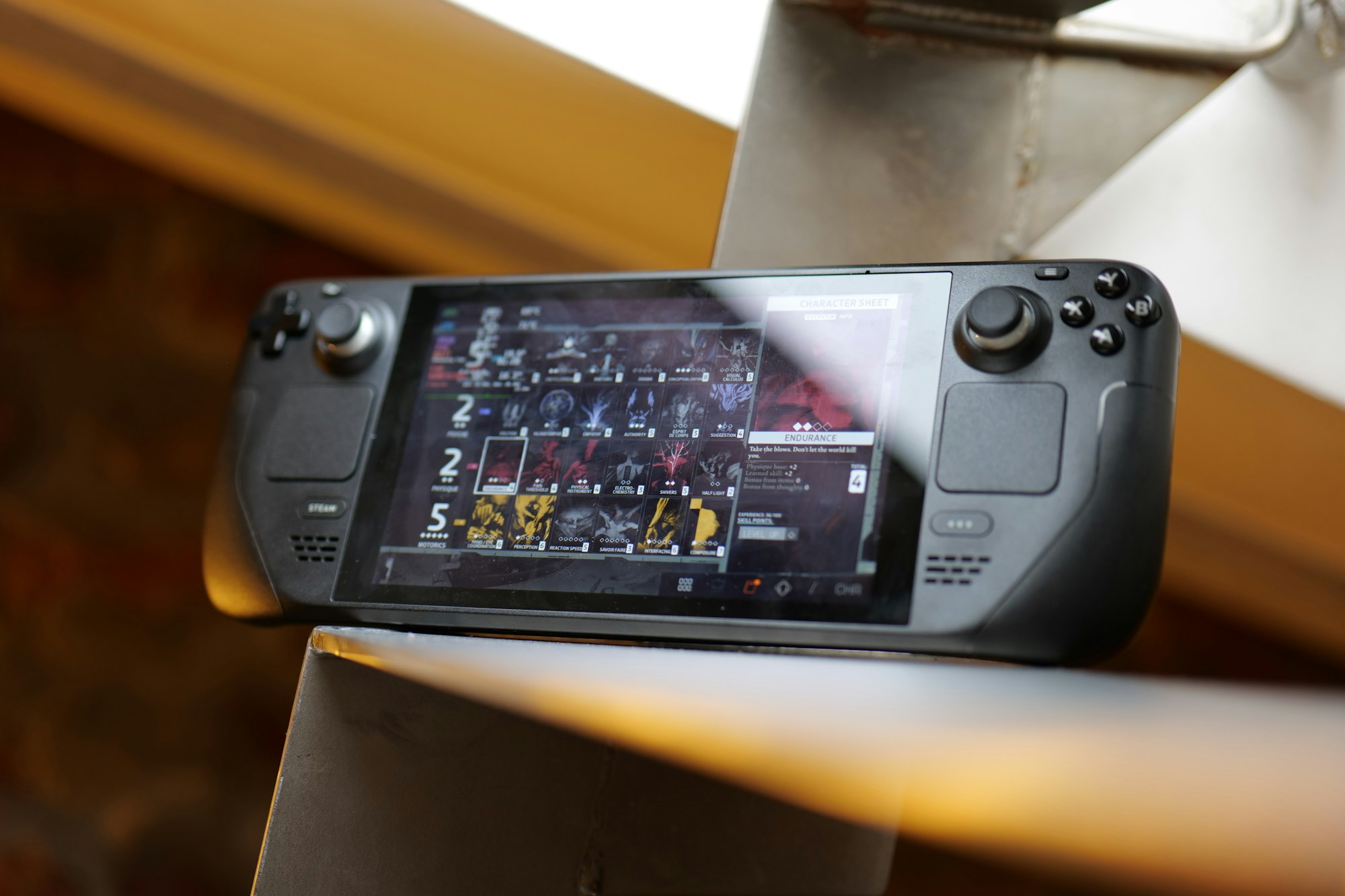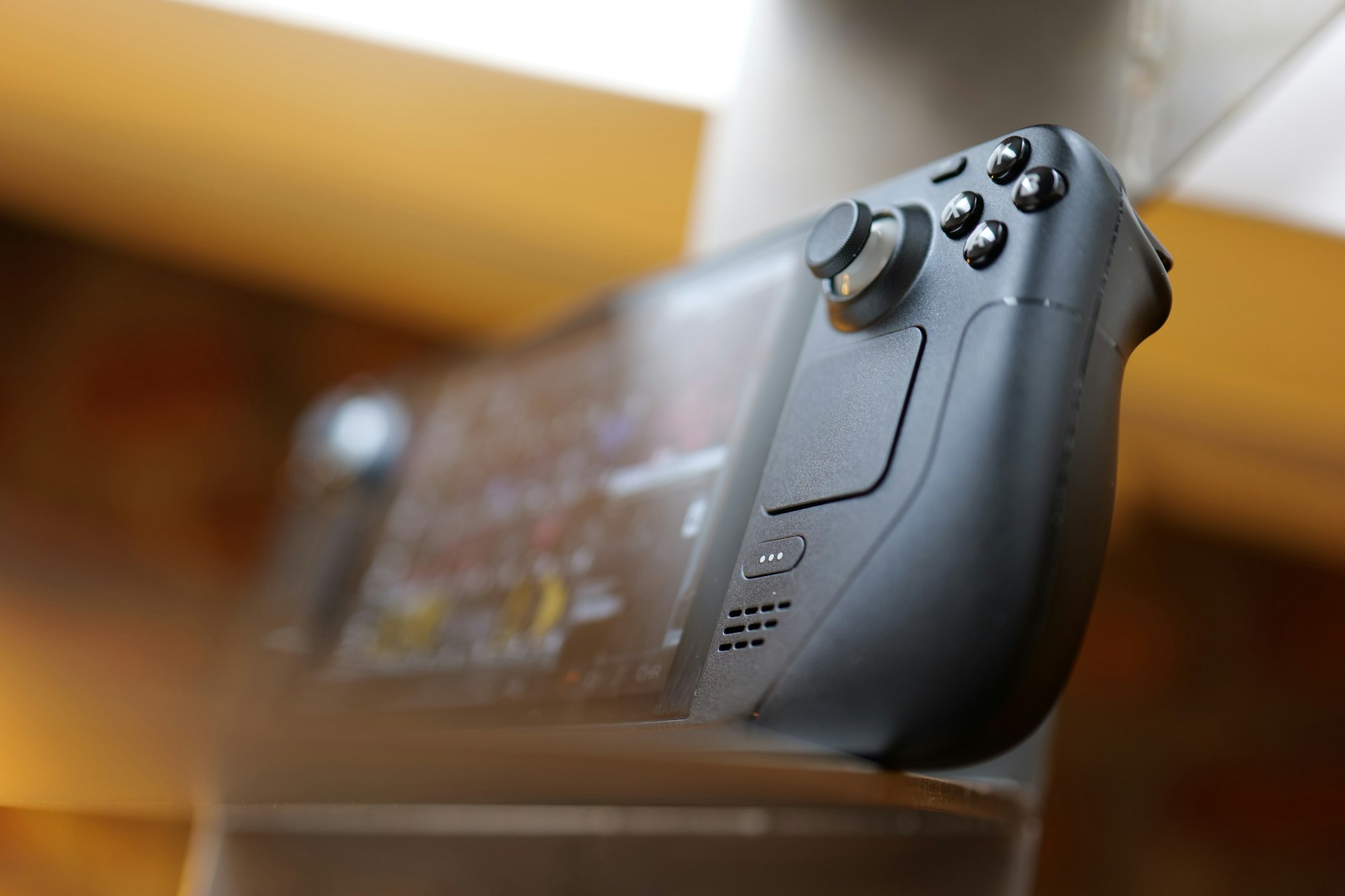The Steam Deck Represents the Next Age in Linux Gaming
Could this be the boost that Linux gaming needs?

This month, Valves Steam Deck comes out. It's a handheld gaming console that runs PC (specifically Steam) games.
It’s a great product for our current market. Indie games are huge, they are smaller and easier to run than a AAA title, and they sell mainly in two places: Steam and the Nintendo Switch. In this duality neither is competition for the other, but there are plenty of Steam indie games people say “I wish this was on the Switch” and there are plenty of people, myself included, who aren’t drawn to the Switch for the Nintendo games, but these indie titles. So Valve making this handheld is a way for the company to meet their customer base where they want to be, which is the handheld market — and potentially score some sales of off the most successful game console of all time.
But I digress, what’s most important about the Steam Deck is that it runs Linux, not windows, to play it’s games, and by important I mean pretty earth-shatteringly game changing.
To understand just how important this is we need to quickly cover why people want Linux gaming and the main problems that have plagued and prevented Linux gaming from taking off and to cover some of the previous big moments in this historic movement.
Why?
So why do people want Linux gaming to be successful?
Well, to start with, people want the freedom to use their operating system of choice and still be able to play the games they want to play. This same scenario applies to MacOS, and there are a vibrant community of people who want more games to work on Mac.
Where Linux shines is that it is free and open source, its the preferred OS for people who appreciate those values. The OS itself is in most cases free to use for life, whilst Windows is an expensive purchase and you are not ever guaranteed a free upgrade when the next version releases.
Open source software has always had a foundation on Linux and so there are more free / less commercial products on Linux, something people quite enjoy.
Linux tends to be light weights as well, using less of the computers CPU, RAM, and storage space to run. Making it a perfect choice for older hardware or for hardware where you are wanting to get the most performance out of. Through the years Windows has had some horribly performant versions like Vista that ate up a lot of resources to do basic tasks, in those moments Linux looked very appealing.

The ten million dollar problem
The everlasting gobstopper of a problem with Linux gaming is that it is a chicken and egg situation. Video game development is expensive. The default video game platform for PC is Windows (for reasons I’ll cover off later). To develop a game to run on another operating system requires additional development costs. Costs that sometimes cannot be justified given that Windows is the dominant platform making Linux Gamers a minority, and a small one at that.
So the cycle continues. Not enough gamers on Linux to justify development, but then not enough games taking chances on Linux to increase the population.
It’s sadly not as simple as that.
Some games are built on technologies that just don’t work on Linux and so is often reliant on open source movements to have created alternatives or emulators of that needed functionality. This often leads to games that won’t work 100% of the time or might be missing features.
Because its such a precarious situation, you’ll find that some developers don’t see the necessary return in investment after porting their game to Linux and thus vow to never do it again.
The roadblocks keep coming, some technologies are proprietary so unless the parent company feels like supporting Linux either through dedicated development or open sourcing their code, entire parts of Linux gaming just cannot exist. For example there is more compatibility with AMD GPUS as they are more supportive of their Linux drivers and using open source technologies like Vulkan. NVIDIA on the other hand, has in the last few years made a better effort at making Linux drivers available but its missing specific features and development is slow.
Linux is also an open platform, and this scares people afraid of piracy or cheating. This has lead to some game publishers out ruling Linux entirely or out ruling certain kinds of games, primarily online live service titles.
It has always been death by a thousand cuts, with not enough velocity to push past them.
A history of slow wins
The gaming on Linux community has been going for a long time; I remember getting involved in it back when XP was the dominant Windows release.
In those earlier days, what kept games off Linux was the proprietary windows technology like Direct X and that GPU drivers where not wildly supported on Linux.
A major win at this point in time was WINE, a Windows emulation package that figured out how to make Windows applications and the necessary drivers work on popular Linux distros. This meant that some games could work and your success was entirely based on how good Wine was.
Then nearly a decade later one of the biggest names in gaming, Valve, announced their intentions for a gaming focused Linux Distro: SteamOS.
With SteamOS came a flurry of announcements of big games that would support it as well as a series of PC’s built specifically for SteamOS.
At this time, this was thought to be it, the thing that would finally legitimise Linux as a true gaming OS and hopefully push the balance into Linux’s favour.
Remember the key thing is to have enough players on Linux to justify Linux versions of games to be played, once that equation works out, then more people can adopt Linux for their gaming needs.
Unfortunately SteamOS sizzled out a bit. It still remained but it hadn’t really pushed the needle far enough, as it was really just a skin over Debian and continued to use the same WINE from before.
Then in 2018, twenty-five years after WINE had come out, we got Proton.
Proton was a supercharged version of WINE specifically for video games created in collaboration with Valve and Codeweavers.
Since Proton, gaming on Linux has gotten more and more successful, and is the backbone to the upcoming Steam Decks success. As at writing over one thousand games have got the compatibility tick that they will run on the Steam Deck using proton, which means any normal Linux gaming user, also using Proton will benefit.

A really bright future
While I don’t think we are quite ‘there’ yet in terms of the thing that will cause people in mass to switch over to Linux, we keep making really promising steps forward, and the Steam Deck represents a deeper investment by Valve and Valve's hardware partners into putting future games on Linux.
I personally would love to be using Linux for all my needs, I have a powerful computer that I do intensive 3D rendering on and using Linux would give me more performance and faster render times, but alas my core game I play all the time is Destiny, and online games do not tend to look favourably at Linux and it wouldn’t work (yes I know I can dual boot — it’s in the cards).
Regardless, I’m excited about what the physical Steam Deck can bring to the market but I’m even more excited by the implications it has on a gaming movement that is nearly 30 years old.
